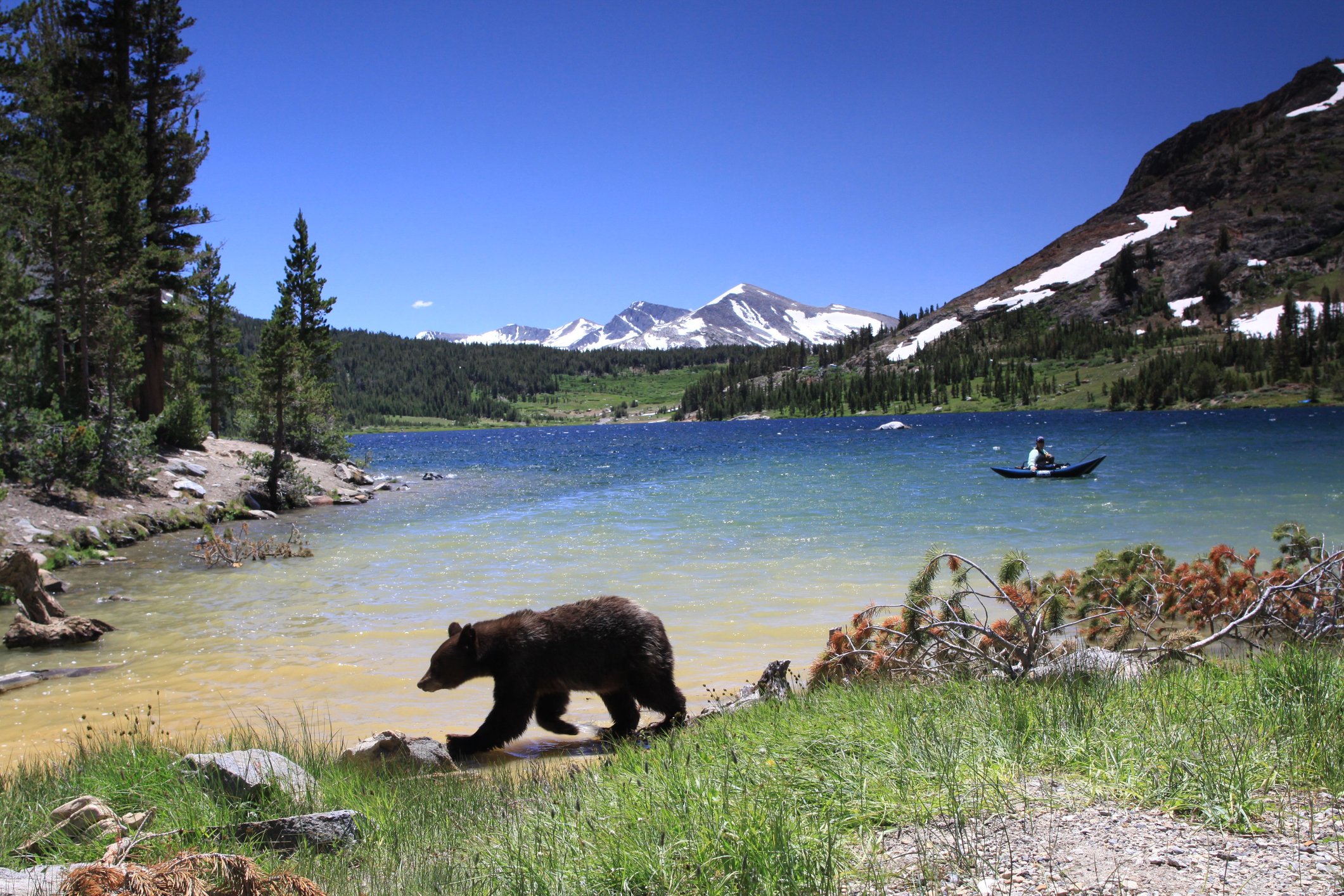
Get Bear Smart Outdoors
Hiking, mountain-biking, and camping in bear habitat is an exhilarating way to spend a day, a week, or a month. And seeing a bear is far more likely to enhance your wilderness experience than spoil it. Knowing what to do to keep yourself and bears safe will keep your spirits high!
Here’s how you can make your backcountry (bear) experiences positive and conflict free:
Be prepared! Learn how bears behave and know how to react in an encounter or attack.
Before setting out, check with the appropriate authorities (provincial wildlife officer, park warden, etc.) to see if there has been any bear activity along your route. Obey all trail closures and information signs. If there are bears active in the area, consider choosing a different route.
Always, always carry bear spray and know how to use it.
Stay alert and watch for bears and bear signs. Tracks, trampled vegetation or scat are all signs that bears may be nearby. Be especially alert where bear foods are abundant.
Make lots of noise. If a bear hears you coming, it will usually avoid you. Warn bears of your presence by talking calmly and loudly or singing, especially in dense bush where visibility may be limited or around rivers or streams where bears have trouble hearing you coming. Your voice will help identify you as human and non-threatening.
Travel in a group.
Avoid animal carcasses. Make a wide detour if you smell or see signs of a dead animal (e.g. ravens circling). Black and grizzly bears can kill large animals for food, and they are attracted to carcasses that have been killed by other causes. Leave the area if possible.
Keep dogs on a leash and under control. Dogs may be helpful in detecting bears, but they may also agitate them and create a conflict situation—sometimes returning to their humans with the bear in pursuit.
Keep your distance. Never approach bears. If a bear (or any animal) heads in your direction, back away in order to maintain a safe distance. Use binoculars, spotting scopes, and telephoto lenses to view and photograph wild animals up close.
Secure all potential bear attractants. Never feed a bear, either intentionally or unintentionally, by being careless with your garbage or food scraps. Always store your food and garbage in a bear-resistant container or hang it in a tree. Securing your campsite with a light-weight, portable electric fence is another effective alternative.
Explore the rest of this section to learn more about how you can prevent human-bear conflicts while out in bear country.
More Resources
Brochure: “Bear Viewing Guide”
Website: Tips for wildlife photography and viewing, Center for Wildlife Information
One-page guide: “Whistler Bear Smart Visitor’s Guide” in English, German, Dutch, Chinese, French, and Spanish
Video: “Staying Safe in Bear Country,” in English and French, International Bear Association

